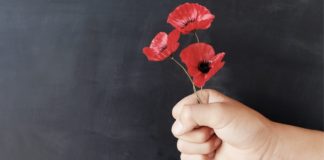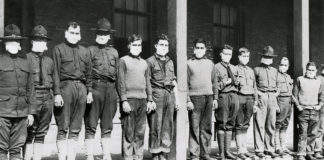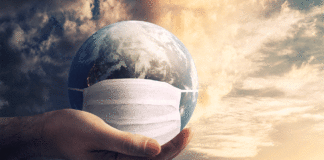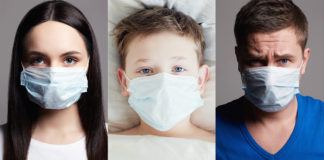COVID-19: What people on the front line think and feel
While most of us have been staying inside for several weeks, many leave the safety of their homes every day to help us live our lives as normally as possible.
Help is on the way. Hope is the way
1. I remember that day, 9/11. It was chaos. Violence, shortage of food. For several days, it was uncertain if there would be more...
COVID-19: Inequality and the pandemic
When confronted with the pandemic, we are anything but equals.
The end of drugs?
In mid-April 2014, the words 'scandal', 'secret', 'drugs', and 'Roche' (the Swiss drug giant) delighted the medical press, which was quick to publish tantalizing news about the ineffectiveness of Tamiflu and the enormous amounts spent by governments in order to stock up on the drug, in preparation for possible flu epidemics.
Spanish flu to COVID-19: Lessons from a forgotten pandemic
The Spanish flu filled graves in almost every cemetery in the world. However, surprisingly, this tragedy had largely been forgotten until recently. A century later, the issue returned to the centre of attention, with specialists wondering if they can identify a pattern in the evolution of the COVID-19 health crisis based on the pandemic from a century ago.
COVID-19: Excerpt from a diary on the Great Britain front
Noemina is a graduate of the University of Hertfordshire, UK, where she majored in health care. She is working in her field as of 2012. The journal excerpt she sent to us reflects her week-long experience at the epicentre of the battle with the new coronavirus in the intensive care unit, where serious cases are admitted.
COVID-19: Beyond coincidence and bad luck: causes of animal to human virus transmission
In the midst of the COVID-19 pandemic, there are specialists who are not surprised by this crisis, and believe that in the future we could be facing other pandemics if we fail to fix the mistakes that led to an increase of animal to human pathogen transmission.
COVID-19: What is my risk of developing a serious form of the disease?
Tueday, 31 March 2020, marked exactly three months since the World Health Organization, the Chinese office, was notified of incidences of pneumonia from an unknown cause. According to specialists from the Robert Koch Institute in Germany, we have not yet reached the peak of the pandemic in Europe. We hear about mild and asymptomatic cases, but also about many deaths globally.
Hope in the storm
This coronavirus crisis has, for me, some perplexing parallels with a well-known incident narrated in the Gospel of Matthew (14:22-33). The disciples are confined in a little boat in the middle of a terrible storm, almost as we are confined at home today by the emergency laws of our countries.
VIDEO: I talked to 10 people who are sick with COVID-19
They live in five European countries and could not be more different in age, interest or inclination. However, that made no difference. They were all infected. Some were not scared. Others were terrified. They have all gone through an experience that, without exception, has marked their lives.
COVID-19: How do you recognise a conspiracy theory in a pandemic?
The Colorado beetle that threatened the potato crop of the former GDR in 1950 might have been an American method of sabotage against the Eastern bloc. A sinister German plot might have been the cause of the Spanish flu. Perhaps AIDS emerged as a biological weapon developed by the United States and has been tested on prisoners and minorities. Every crisis humanity has...
COVID-19: How to stay efficient at work when your kids are near
How can one be efficient with your tasks when you no longer have an office of your own? How can one divide themselves between children, household chores and deadlines? How can one excel in their job without losing their mind or at least their patience? These are questions I had to face during the pandemic, even if working from home, around children, is...
COVID-19: Life in the shadow of death
I am not an expert on the phenomenon of death. But like all of us, I have to live in its shadow, and watch the restlessness and greed it causes. The same gloomy reports that circle the planet also reach me. I feel especially conscious of this as COVID-19 claims its first victims in my country.
Telemedicine. How to get the most out of it
While an increasing number of family physicians and private health networks offer online consultations, it's helpful to better understand telemedicine, the opportunities it creates and its limitations.
COVID-19: How has it affected young people?
Early reports out of China showed that elderly people and the chronically ill were most vulnerable to Covid-19. Yet an alarming number of young people in the United States have been hospitalized with severe infections. According to the Centers for Disease Control and Prevention, nearly 40% of American Covid-19 patients who were hospitalized were under 55 – and 20% were between ages 20...


























